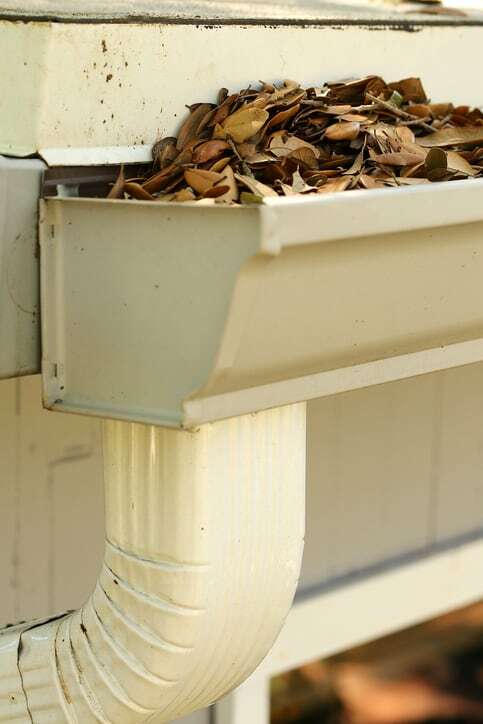
But it’s not just your home that’s at risk — so is your home insurance. It’s almost certain that there’ll be clauses in the small print of your policy requiring you to take various actions to minimise the risk of damage to the building, and if you’ve failed to meet these, the insurer’s loss adjuster may turn down your insurance claim.
Here are just a few of the steps you may need to take to prepare for winter.
Have You Rodded Your Pipes Yet?
Autumn is a dangerous time for your guttering. Falling leaves get blown around in the wind, and other debris gets blown with them. And some of this debris can end up in your gutters and downpipes. If it’s left, the rainwater can’t run away and could end up flooding your home, perhaps causing structural damage.
It’s time to get rodding.
Preventing damage to your home should be enough reason, but failing to clear your gutters and downpipes could prevent you from making an insurance claim. This is because there’s usually a clause in your policy specifying that you have to get your guttering cleared and rodded at least once a year.
It’s not enough to do it, though. If you’re making a claim, the loss adjuster will require proof before allowing it to go through. If you feel confident enough to do the rodding yourself, you could get someone to take pictures of you. Or even take selfies — but remember that safety comes first.
If you’re hiring a contractor to rod your pipes, it’s vital you have a receipt. This isn’t always as straightforward as it might seem, as some contractors prefer to work cash in hand, with no documentation. That might be cheaper in the short term, but it could end up costing you a lot more, if you have nothing to show the loss adjuster.
Care for Your Roof
Your roof does a vital job protecting you and your home, and it’s essential to take care of it. It’s not just the guttering and downpipes that need regular attention. If you end up making an insurance claim for a leaking roof, you might be in trouble if you haven’t had it checked lately.
This requirement is often written into insurance policies, especially if you have a flat roof. Even if it’s not explicitly stated, though, failure to look after your roof could still mean you end up paying for the entire cost of repairing flood damage to your home. All for the lack of a bit of rodding.
Remember to Have Your Chimneys Swept Before Winter Sets In
How long is it since you last cleaned your chimneys?
As winter draws in, there’s nothing like a roaring fire in the grate to make you warm and cosy in your home. It comes with a price, though, and that includes have the chimney swept on a regular basis. A blocked or dirty chimney can cause serious damage — perhaps even a fire that destroys your home.
This is because any soot left in the flue can ignite when it heats up, not to mention other debris, such as birds’ nests or spider webs, that might have found its way into the chimney. At best, that could damage your flue, and at worst it could burn your house down — and, if you try to make an insurance claim when you’ve neglected your chimney, the loss adjuster could turn you down.
A blocked flue can also release deadly carbon monoxide into your home, from the gases coming back down the chimney.
How Often Should a Chimney Be Swept?
The fuel used in the fireplace dictates how often your chimney needs to be swept. A coal-fire chimney should be swept at least twice a year and a wood-fire chimney quarterly when the fireplace is in use. If you’re using smokeless, gas or oil fuels, you’re usually safe keeping it to once a year — but remember that all gas-related work should be done by a Gas Safe engineer. Always be safe with your gas appliances.
A few basic safeguards will help you enjoy your fire securely and make certain that, if you do suffer a fire, the loss adjuster will have no reason to refuse your claim:
- Have your chimney swept before you start using the fireplace.
- Keep the grate clean, making sure it’s free from ash and soot.
- Avoid using damp wood, as cooler smoke creates more ash.
- Using a fireguard in front of an open fire can prevent sparks flying out from the embers.
- Don’t leave a fire burning unattended — extinguish it before you leave the house or go to bed.
- If you’re using wood, don’t leave your supply too close to the fire, as it could ignite.
- And — invest in a carbon monoxide alarm. Your life and your family’s lives might depend on it.
Chimney sweeps used to be considered very lucky. Maybe that’s because people back then realised that their job could save lives.
Submit your blog to Laurel Leaf Networking here.
Join Laurel Leaf Networking Facebook group here.

